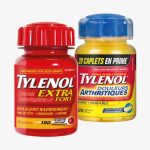What Drugs Can Cause Low Potassium Levels?

Potassium is an electrolyte that the body needs to stay healthy. As the American Heart Association (AHA) note, foods that contain potassium can help manage blood pressure by reducing the negative impact of sodium. Potassium is necessary for the normal functioning of all cells. It regulates the heartbeat, ensures proper function of the muscles and nerves, and is vital for synthesizing protein and metabolizing carbohydrates.
Potassium may play a role in bone health. Studies have suggested that people who eat a lot of fruits and vegetables that contain potassium may have higher bone mineral density. A diet high in potassium may also help preserve muscle mass in older people and people who have health conditions that lead to muscle wasting.
What is Hypokalemia?
Hypokalemia is generally defined as a serum potassium level of less than 3.5 mEq/L (3.5 mmol/L). Moderate hypokalemia is a serum level of 2.5-3.0 mEq/L, and severe hypokalemia is a level of less than 2.5 mEq/L. Hypokalemia is a potentially life-threatening imbalance that may be iatrogenically induced (typically caused inadvertently, through an incorrect diagnosis or the prescription of medicine that ends up doing harm).
Medications cause hypokalemia through a variety of mechanisms, including intracellular potassium shifting, increased renal loss, and/or stool loss. In the geriatric population, medication-induced hypokalemia is very common. Severe deficiencies can be life-threatening.
Signs of a potassium deficiency include:
- extreme fatigue
- muscle spasms, weakness, or cramping
- irregular heartbeat
- constipation, nausea, or vomiting

What Drugs Can Cause Low Potassium Levels?
List Medications Associated With Hypokalemia
| Medication Class | Examples of Common Drugs | Mechanism |
| Antimicrobials | Nafcillin, Ampicillin, Penicillin, Aminoglycosides*,Amphotericin B* Foscarnet* | Renal potassium loss |
| Beta2-receptor agonists | Albuterol Ephedrine Epinephrine Formoterol Isoproterenol Pseudoephedrine Terbutaline Salmeterol | Shift of potassium from extracellular fluid to intracellular fluid compartment |
| Diuretics | Acetazolamide Bumetanide Chlorthalidone Ethacrynic acid Furosemide Indapamide Metolazone Thiazides Torsemide | Renal potassium loss |
| Insulin | High dose (overdose) | Shift of potassium from extracellular fluid to intracellular fluid compartment |
| Mineralocorticoids and glucocorticoids | Hydrocortisone Fludrocortisone Prednisone† | Renal potassium loss |
| Laxatives | Sodium polystyrene sulfonate Phenolphthalein Sorbitol | Stool (gastrointestinal) potassium loss |
| Xanthines | Theophylline Caffeine | Shift of potassium from extracellular fluid to intracellular fluid compartment |
| Other | Verapamil (in overdose) | Shift of potassium from extracellular fluid to intracellular fluid compartment |





